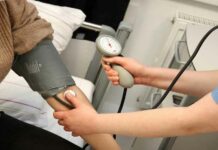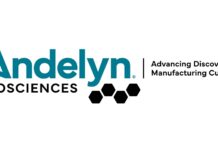Medigene AG announced that the German Senior Federal Authority “Paul-Ehrlich-Institute” (PEI) and the relevant ethics committee have approved the study design of the first planned Phase I/II clinical trial with its T cell receptor (TCR)-modified T cell therapy MDG1011.
Additionally, Medigene’s contract manufacturer has received the required product-specific manufacturing license to produce the study material from the local competent authority. PEI is currently reviewing the locally granted manufacturing license and Medigene expects to start the trial within the coming weeks.
MDG1011 is Medigene’s first proprietary, clinical stage TCR immunotherapy product candidate. The TCR-modified T cell product targeting the tumor antigen PRAME (PReferentially expressed Antigen in MElanoma) will be tested in a Phase I/II clinical trial in approximately 92 blood cancer patients with acute myeloid leukemia (AML), myelodysplastic syndrome (MDS) or multiple myeloma (MM).
Dr. Kai Pinkernell, Senior Vice President Clinical Affairs and CMO of Medigene AG, said: “Attaining these approvals for MDG1011 is an important step towards the start of our clinical trial, and a further validation of our research and product development work. With our specific study design, we are able to evaluate our T cell therapy simultaneously in various diseases and to generate data in three hematological indications in parallel.”
Study Design: In the Phase I part of this multi-center, open-label Phase I/II clinical trial, approximately 12 patients who are HLA-A*02:01 positive and whose advanced hematological diseases, namely acute myeloid leukemia (AML), myelodysplastic syndrome (MDS) or multiple myeloma (MM), are positive for PRAME expression, will be eligible to participate in a dose escalation trial using a 3+3 design.
Three dose cohorts and an optional fourth dose cohort will test dose ranges from 100,000 to 10,000,000 transduced T cells per kg body weight. Each dose cohort will include one patient with each of the three hematological diseases. Patients will undergo preconditioning treatment with cyclophosphamide and fludarabine. After completion of treatment of all patients in a dose cohort and a four-week safety follow-up period, dose escalation will be decided by an independent Data and Safety Monitoring Board (DSMB). The primary endpoints for the Phase I part of this clinical trial will be safety, feasibility and overall response rate (ORR), together with other secondary endpoints, and will be assessed at three months with a total follow-up period of up to 12 months.
Two of the three indications will subsequently be carried forward into the Phase II part of the clinical trial, after a positive DSMB assessment regarding the safety of MDG1011 and review by the competent authority and central ethics committee. In the Phase II part, 40 HLA-A*02:01 and PRAME positive patients will be treated with MDG1011; another 40 patients, who are positive for PRAME but negative for HLA-A*02:01, will be included into the control groups (20 treated and 20 control patients per indication) and treated with investigator choice therapy. Co-primary endpoints of the Phase II part are safety and efficacy, where efficacy is measured as ORR at 3 months. The trial will have a follow-up period of up to 12 months. Secondary endpoints will include duration of response (DoR), time to progression (TTP), progression-free survival (PFS), overall survival (OS), quality of life (QoL) and the correlation of PRAME expression with the antitumor response.
The clinical trial will be performed by the Department of Internal Medicine III of the University Hospital Regensburg (Director: Prof. Dr. Wolfgang Herr) under the leadership of the coordinating investigator PD Dr. Simone Thomas, as well as by the University Hospitals of Erlangen and Würzburg, Germany.
About Medigene’s TCR technology: The TCR technology aims at arming the patient’s own T cells with tumor-specific T-cell receptors. The receptor-modified T cells are then able to detect and efficiently kill tumor cells. This immunotherapy approach attempts to overcome the patient’s tolerance towards cancer cells and tumor-induced immunosuppression by activating and modifying the patient’s T cells outside the body (ex vivo).
About Medigene AG
Medigene AG is a publicly listed biotechnology company headquartered in Martinsried near Munich, Germany. The company is developing highly innovative immunotherapies to target various forms and stages of cancer. Medigene concentrates on the development of personalized T cell-based therapies, with associated projects currently in pre-clinical and clinical development.
For more information, please visit http://www.medigene.com


















